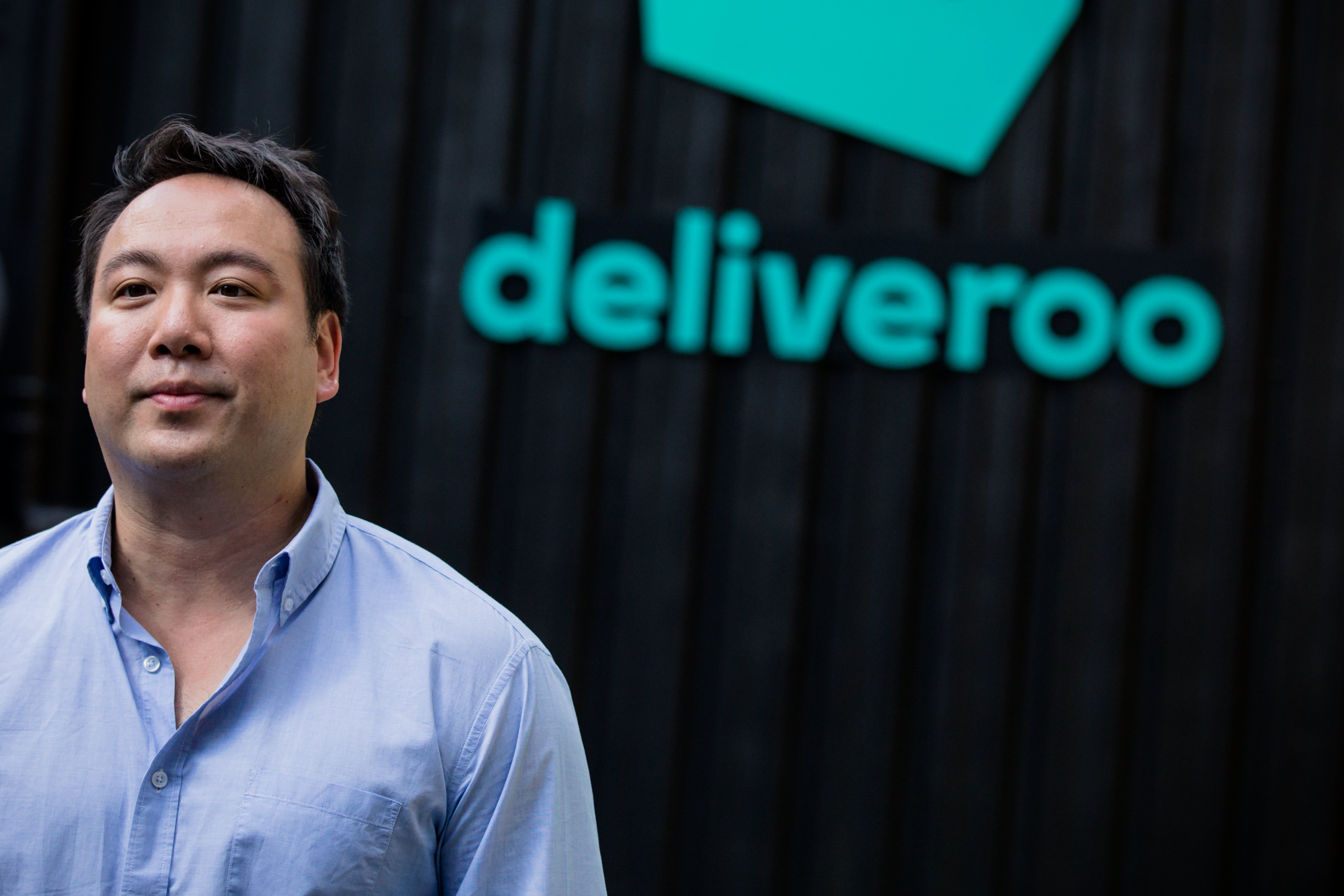
Deliveroo CEO Will Shu.
Aurelien Morissard | IP3 | Getty Images
LONDON — The coronavirus pandemic has accelerated the adoption of online food delivery apps by two to three years, according to the chief executive of takeaway app Deliveroo.
“Our initial analysis suggests that Covid-19 has accelerated consumer adoption of these delivery services by about two to three years,” Deliveroo’s Will Shu said at the Web Summit tech conference on Thursday.
“We saw this incredible increase in new customers joining the platform. We also saw our existing customers looking to order more often, also ordering for the family more frequently, we saw average basket sizes increase, and also ordering a wider range of products.”
Headquartered in London, Deliveroo has been loss-making for several years but the company’s business has grown through the pandemic, Shu said, adding that it has been profitable at the operating level for the last six months.
Shu said scaling up grocery deliveries had been the firm’s “main innovation” during the pandemic, with this part of the business now accounting for 10% of Deliveroo’s U.K. revenues. The feature allows customers to get items from supermarkets like Waitrose, Co-op, Aldi, Carrefour and Casino.
Next year, Deliveroo plans to invest aggressively in expanding its global network of dark kitchens, which it calls Editions.
These dark kitchens are typically in shipping containers or warehouses on industrial sites and they give restaurants the ability to sell their food in areas where they don’t have a physical presence. Deliveroo currently has around Edition sites worldwide.
“My bet was that this was going to be the future of food delivery,” Shu said in reference to dark kitchens, adding that they have “evolved from a nice-to-have expansion play for restaurants to really a fundamental part of restaurants’ strategy.”
Founded in 2013 by Shu and Greg Orlowski, Deliveroo uses a network of 80,000 freelance couriers to deliver food from over 100,000 restaurants to people’s homes and offices.
Restaurant owners told CNBC in May that they felt Deliveroo took too much commission on each order. At the time, a Deliveroo spokesperson said: “We are here to deliver for restaurants who want to carry on offering their amazing food to families at home during this difficult time. We are working with restaurants to optimize their operations for delivery, and we are doing everything we can to make sure people still have access to the food they want and need.”
Food delivery riders have also previously criticized the company for paying low wages. Deliveroo said in April that it was doing all it could to help riders through the pandemic, with riders earning more than the national minimum wage on average.
The UberEats competitor was backed by Amazon in a $575 million funding round in May 2019 and Amazon now owns 16% of the company, which is valued at well over $2 billion. Amazon’s investment was approved by the U.K. Competition and Markets Authority (CMA) in August.
After a recovery in the food delivery market, regulators then switched focus to whether the transaction would hamper competition in restaurant and online grocery delivery.
Reports have suggested that the company plans to hold an initial public offering in 2021.



